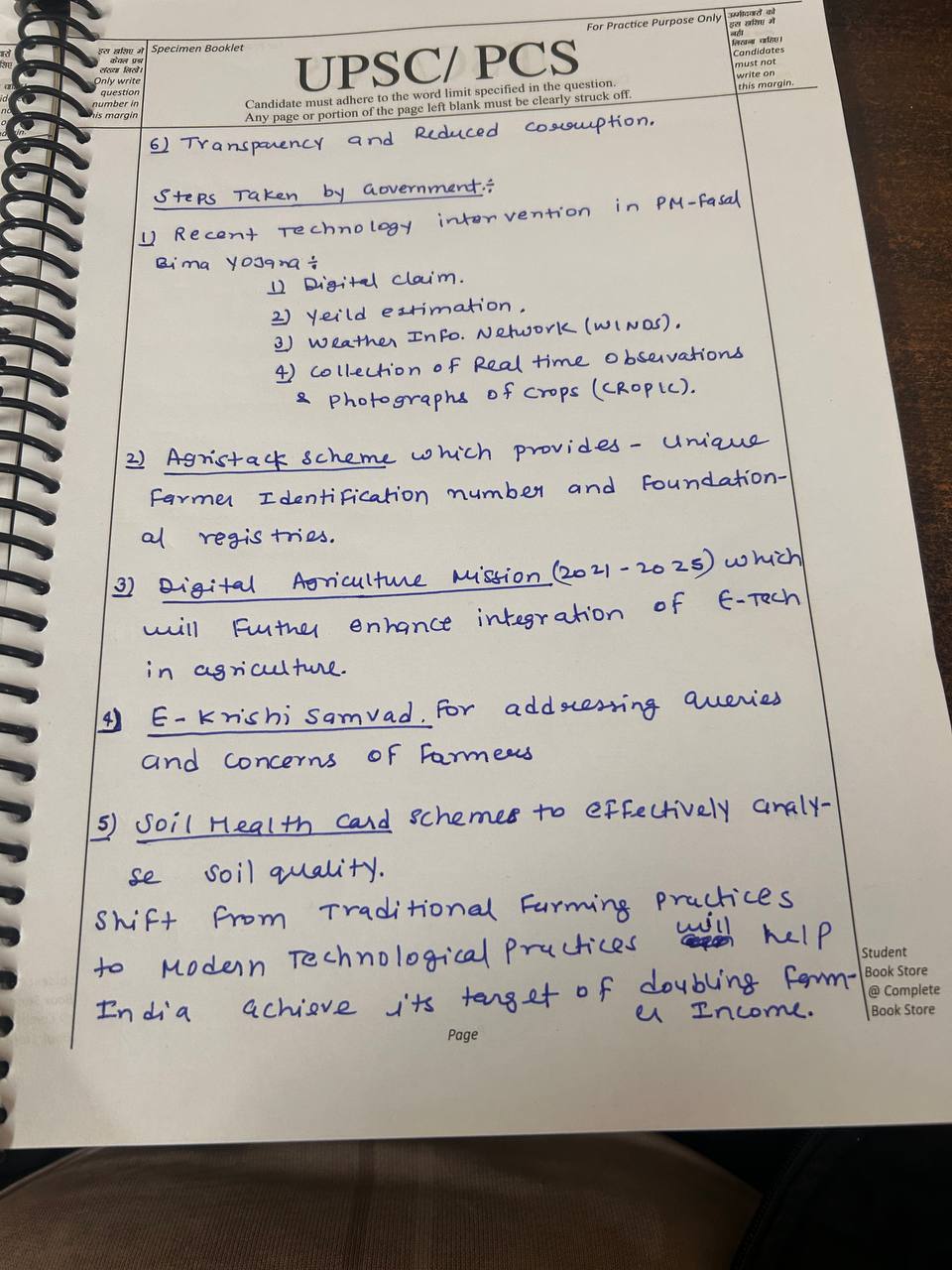Highlight the advantages of e-technology for farmers in India. Additionally, describe the actions the government has done in this regard. (Answer in 200 words)
Model Answer Introduction E-technology refers to the application of electronic tools and techniques in agriculture, significantly improving efficiency and productivity. This encompasses innovations such as smartphones for market information, GPS for precision farming, and e-commerce platforms for seRead more
Model Answer
Introduction
E-technology refers to the application of electronic tools and techniques in agriculture, significantly improving efficiency and productivity. This encompasses innovations such as smartphones for market information, GPS for precision farming, and e-commerce platforms for selling produce.
E-Technology in Production of Agricultural Produce
Precision Agriculture
Technologies like GPS from companies such as John Deere enhance farm management by optimizing seeding and harvesting, thus maximizing resource use.
Informed Decision-Making
Start-ups like AgroStar provide soil testing kits and apps, helping farmers analyze soil health and make informed fertilizer decisions, leading to healthier crops.
Climate-Smart Agriculture
Platforms like IBM’s Weather Company offer real-time weather updates, enabling farmers to plan operations effectively and avoid adverse conditions.
Irrigation Management
Jain Irrigation‘s sensor-based systems promote water conservation, ensuring optimal crop growth while reducing waste.
Disease Monitoring
Apps like Plantix allow farmers to upload images of affected crops, receiving expert advice for timely disease control.
Online Education
Initiatives like Digital Green use technology to provide video demonstrations, enhancing farmers’ skills and promoting best practices.
Remote Sensing
The ISRO employs remote sensing technology to monitor crop health, aiding in early pest detection and accurate yield predictions.
Data-Driven Insights
Microsoft’s FarmBeats utilizes diverse data sources for actionable insights, assisting farmers in informed decision-making.
Blockchain Technology
AgriLedger fosters transparency in the agricultural supply chain, ensuring fair compensation for farmers through secure record-keeping.
E-Technology in Marketing of Agricultural Produce
Empowering Rural Economies
Platforms like Amazon Saheli and Flipkart Samarth connect farmers directly with consumers, fostering rural entrepreneurship and ensuring fair prices.
Real-Time Market Information
Platforms like Kisan Suvidha provide essential market data, empowering farmers to make informed selling decisions for better profit margins.
Online Auction Platforms
The e-NAM platform revolutionizes trading by creating a transparent bidding process, ensuring farmers receive fair prices.
Direct Consumer Engagement
Social media enables farmers to market their products directly to consumers, building trust and niche markets for fresh produce.
Collaborative Marketing
Aggregator platforms like DeHaat enhance economic stability by allowing small farmers to pool resources and negotiate better prices.
Transparent Product Information
QR codes on packaging, as seen in Neemrana, provide consumers with product information, fostering trust in agricultural produce.
E-Certifications
Platforms accredited by the National Programme for Organic Production (NPOP) ensure product quality, helping farmers obtain better prices.
Conclusion
E-technology is transforming agriculture by improving both production and marketing processes. Continuous efforts to educate farmers on digital skills are essential for maximizing the benefits of these technologies, ensuring a sustainable agricultural future.
See less


See less